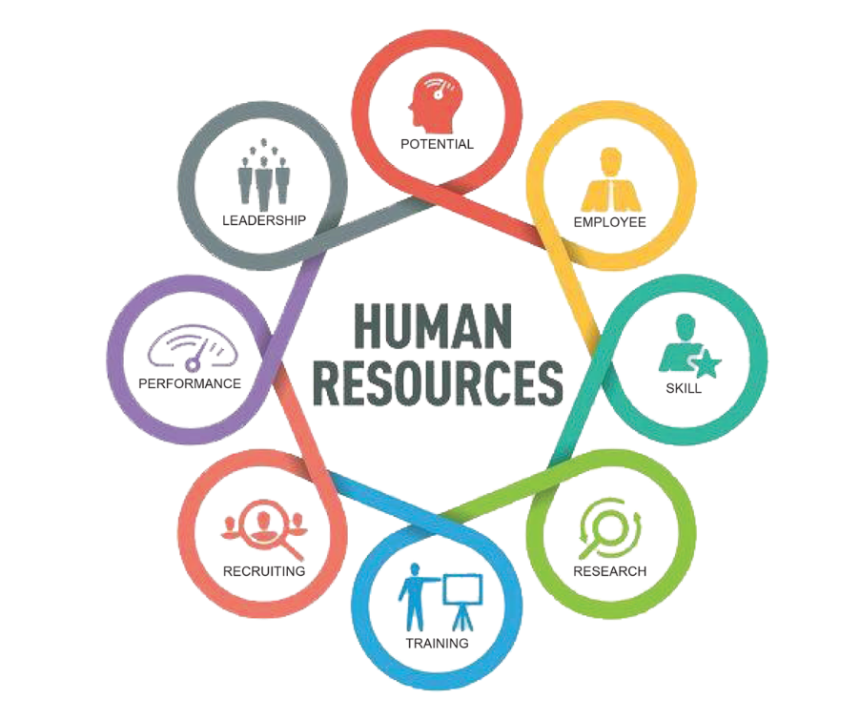HR - BRIDGING THE GREAT DIVIDE
Who Does HR Really Serve — Employer or Employee?
In Botswana and beyond, the role of Human Resources (HR) is evolving — and so is the debate over where its loyalties lie. Historically, HR has leaned toward serving the employer, acting as a guardian of corporate interests. But this legacy alignment is being challenged as organizations begin to understand the deeper value HR can offer when it advocates for balance, fairness, and culture.
A Personal Reflection from the HR Trenches
I always felt the heat of conflict in my role as an HR manager. On the one hand, I truly wanted to be a champion of the people — I cared about employees, and yes, I wanted to be liked. But on the other hand, I was acutely aware that my career success depended on how leadership perceived me. And leadership judged me based on my ability to manage costs — particularly the salary bill, which is often the biggest slice of the operating budget.
So my KPIs became things like reducing overtime, managing absenteeism, keeping pay rates “reasonable,” and hiring as cost-effectively as possible. In effect, that meant I was serving the employer.
To be fair to employees? That’s a whole different story. It’s an impossible balancing act unless the organizational scorecard explicitly values both operational efficiency and employee wellbeing. We rarely design metrics that reflect the emotional and cultural labour of HR. If it is on the score card then it has a 5% value attached to its weighting.
But it wasn’t always conflict. There were areas of common ground — and I was able to exploit them quite effectively, which in turn helped my career. One such area was talent development and equal opportunity, particularly during my time in South Africa. Back then, black advancement was a key priority — and a deeply personal one for many employees. There were very few black managers, and I worked hard to create opportunities that would change that.
Interestingly, this work aligned beautifully with both employee aspirations and the organization’s liberal agenda to build a more representative, egalitarian workforce. So, for a time, I was seen as both a reformer and a team player.
But then things would get complicated again — a strike would break out, or stay-aways would become the site of tense confrontations. Suddenly, I was being asked by management to control the unrest, while employees would look at me with disappointment and ask, “Where are you now, HR?”
It just goes to show there are areas of mutual interest, but often more that divide than unite.
Bridging the Divide
The future of HR lies not in choosing sides but in becoming the bridge. In Botswana, where workplace hierarchies and job insecurity often discourage open dialogue, the best HR professionals are those who can straddle the line: protecting business interests while upholding employee dignity.
When HR is trusted by both parties, it becomes more than a policy enforcer — it becomes a steward of organizational culture, a neutral facilitator, and a credible driver of ethical practice.
Toward Greater Autonomy
If HR is to fulfil this dual role with integrity, greater autonomy is essential. In Botswana’s context, practical
reforms could include:
- Independent HR oversight: Ethical matters and whistle-blowing should be reviewed by a dedicated HR committee or sub-board, not just the CEO.
- Professional licensing: As with lawyers or accountants, HR professionals should be governed by a code of conduct enforced by empowered bodies like BOPEU or BHRPA.
- Investigative independence: Internal HR investigations must be protected from undue influence, to preserve credibility and fairness.
- Capacity building: HR practitioners must be trained not just in recruitment and payroll, but also in ethics, mediation, and employment law.
These steps would not only strengthen HR’s backbone but also foster a workplace climate where decisions are more principled than political.
Is True Neutrality Possible?
Absolute neutrality in HR is an ideal — but perhaps not a fully attainable one. HR professionals work within ecosystems shaped by power, politics, and performance metrics. Yet neutrality isn’t about perfection; it’s about perception and consistent effort.
By embedding strong ethical frameworks, transparent processes, and consistent policies — and by investing in bias awareness training — HR can build enough moral authority to act as a fair arbiter. When both leadership and staff perceive HR as principled, it unlocks new levels of influence and effectiveness.
Innovations on the Horizon
To better balance its dual responsibilities, HR must also innovate. Globally and locally, promising approaches include:
- AI-driven conflict diagnostics to spot emerging tensions before they escalate
- Anonymous employee feedback platforms that identify concerns HR can act on.
- Shared-service HR models that serve multiple departments or subsidaries impartially.
- Ombudsman roles within HR, focused purely on ethics and employee complaints, offering a semi-independent voice within the organization.
Botswana’s larger NGOs and parastatals could pilot such innovations, before rolling them out more widely.
Strengthening Support for HR Professionals
Finally, we must ask: are HR professionals in Botswana receiving the support they need?
Many operate in silos, often with limited peer interaction or access to cutting-edge tools. To build stronger, more resilient HR teams:
- Professional associations like BHRPA must move beyond networking to offer mentorship, legal updates, mental health support, and continuous learning.
- HR centres of excellence — co-funded by government and private enterprise — could provide accredited training, toolkits, and research.
- Cross-border partnerships can expose HR professionals to global best practices, contextualized for local application.
Conclusion:
Time to Rethink HR’s Role
In today’s dynamic workplaces, HR must evolve from compliance enforcer to ethical steward — a role that requires autonomy, trust, and innovation. Botswana has the opportunity to lead this transformation, not just through policy, but through courageous HR leaders willing to walk the bridge between employee and employer with integrity.
Let’s support them to stand tall — because when HR thrives, the whole organization becomes stronger.

